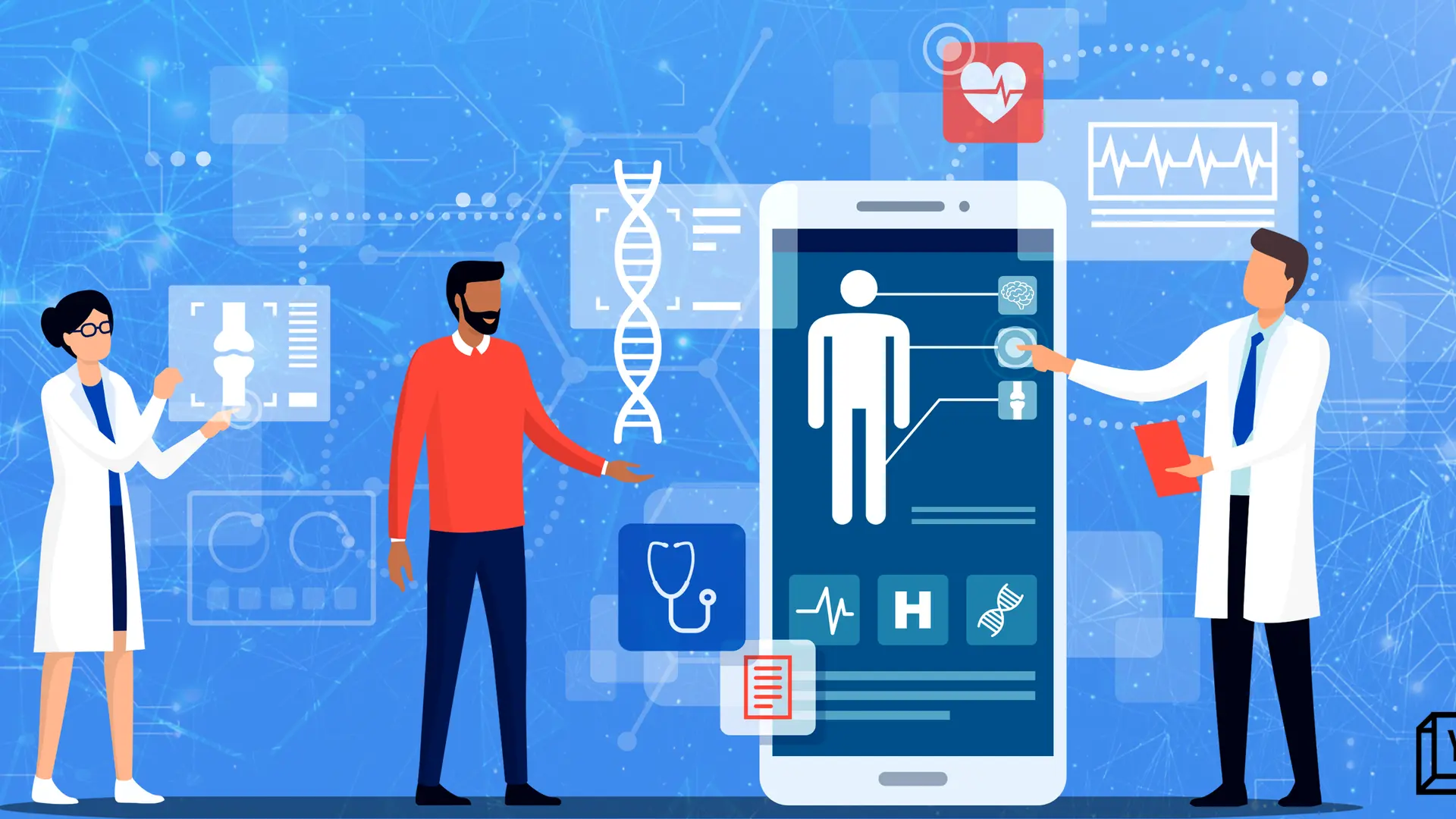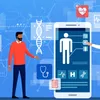Augmented intelligence in healthcare: Understanding the role of GenAI
Augmented healthcare through the coordinated use of automation and AI is already driving improvement in business KPIs, accelerating the speed-to-market for digital-first products, and providing better experiences for patients and caregivers.
Healthcare organisations (HCOs) today face multiple challenges. On one hand, they find it challenging to adopt large-scale digital solutions due to a siloed and high-cost approach to technology transformation. On the other hand, patients want them to transition from a service provider mindset to value-based care provision.
To address these challenges, HCOs are increasingly leveraging intelligent automation and artificial intelligence (AI) technologies to drive their transformation initiatives. There are opportunities across the board: clinical process areas and care provision, patient and caregiver experience, operational productivity, and finance functions like revenue cycle management.
Augmented intelligence defined
Augmented intelligence can deliver significant enhancement in human judgement by leveraging the power of automation and AI. Imagine a doctor who has an AI assistant that can proactively classify patients based on criticality or a sales agent at a health insurance firm who receives pre-built plans based on an individual's health profile.
Transforming healthcare: Payers and providers
Augmented intelligence can transform healthcare payers (insurance companies and health plans) and providers (doctors, hospitals). Digital health solutions can power the entire healthcare value chain, improving the patient experience and reducing caregiver burnout.
Care provision and clinical areas
The future of healthcare is not low-value repetitive work that involves information searches across large databases. It is about understanding the implications of a disease, the treatment pathways, and trade-offs.
Generative AI has a significant role to play in care provision, especially in symptom analysis, text summarisation, recording tools for caregivers, and patient self-service tools. In radiology, for example, AI and conversational interfaces can be used to build assistants that use computer vision and multi-modal large language models (LLMs) to read X-rays and provide triaging and a pre-diagnosis to the radiologists to review further.
Another exciting area in care provision is ambient health. AI-enabled systems can now automate documentation for a clinical encounter. The audio of the interaction with a patient can be captured and converted to text, which can feed into a generative AI system that extracts and summarises relevant information. This data can then be transferred to the electronic health record (EHR) and emailed to the patient simultaneously.
An example solution focused on improving caregiver productivity is auto-generating the pre-visit documentation. Using GenAI and integrations with EHR and electronic medical record (EMR) systems, we can now create a summary for all the patients scheduled for the day. This can assist caregivers in quickly identifying and closing healthcare gaps; what would take up to two hours can now be done in minutes.
Enabling patient self-service is also a huge opportunity area. Powered by wearable technology and connected devices, patients can collaborate with health professionals to accelerate the diagnosis, triage and treatment pathways. AI can help identify patterns quickly and detect anomalies early to flag them for the care provider to intervene. It's not about telling the doctor or nurse what to do but aiding them to make better decisions.

Operational and finance areas
Traditional or predictive AI algorithms are critical for spotting patterns using past data and undertaking further analysis in operational and finance domains. Automation technologies that enable workflow automation, data automation, and orchestration across EHR and EMR systems further enable the transformation.
Efficient revenue cycle management solutions powered by both these technologies can accelerate reimbursements, prevent denials, and arrest revenue leakage. For example, propensity-to-pay solutions using AI can significantly improve claim efficiency by proactively engaging with patients during the check-in and pre-authorisation stages.
Similarly, payers can assure revenue integrity by automating audits of billing procedures and claim submissions to detect fraud early. Denial management solutions based on AI are becoming essential for handling claim denials and appeals, assuring optimum reimbursement and decreasing revenue loss.
Future of healthcare is augmented
Augmented healthcare through the coordinated use of automation and AI is already driving improvement in business KPIs, accelerating the speed-to-market for digital-first products, and providing better experiences for patients and caregivers. There are still some challenges related to security, data privacy, ethical use and explainability of AI. But as these technologies advance, we can expect even more innovative solutions that will transform the healthcare industry as we know it.
(Deepak Kinger is Co-founder and Chief Strategy Officer at EvoluteIQ, handling the company's overall strategy.)
Edited by Kanishk Singh
(Disclaimer: The views and opinions expressed in this article are those of the author and do not necessarily reflect the views of YourStory.)








